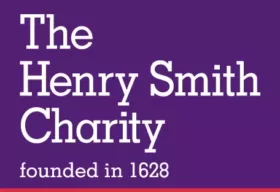The Reach Fund
Background
Access - The Foundation for Social Investment was set up to test new models of investment readiness. The Reach Fund is provided by Access and administered by Social Investment Business.
Objectives of Fund
The fund aims to support charities and social enterprises in England to prepare for investment. Through this programme, social investors (Access Points) can refer charitable organisations to the Reach Fund to apply for grants to pay for the support they need.
Value Notes
Grants of between £5,000 and £15,000 are available.
Who Can Apply
To be eligible for the Reach Fund, organisations should be a charity or social enterprise and must meet the following criteria:
- Be based in and operate in England.
- Be close to raising repayable finance for a specific purpose.
- Have a social investor who has indicated there is information missing that is preventing them from making an investment offer.
- Be looking to raise repayable financing in the next 6–12 months (from the point of application).
- Have a specific investment goal, the Reach Fund is unlikely to be able to support with general capacity building
- Have a clear social mission.
- Distribute less than 50% of post-tax profits and reinvest at least 51% of surpluses into pursuing their social mission.
- Have a constitutional or contractual lock on their social mission, dividend and surplus distribution policy (also known as an asset lock).
- Have good governance and a minimum of two independent directors.
Location
England
Restrictions
Funding is not available for:
- Sole traders.
- Items/costs that have already been paid for/incurred (retrospective costs).
- Day to day running costs of the organisation, such as existing staff costs or other overheads or the auditing of accounts.
- Contribution towards the time of internal staff working on the project where no additional cost is incurred.
- Early-stage feasibility work to establish whether or not the project or raising finance is realistic.
- Recruitment costs, including governance recruitment costs.
- General support to increase revenue or generally make the organisation more profitable or able to afford repayable finance.
- General marketing support including materials such as leaflets or websites.
- Purchase of IT systems.
- Ongoing general support to add capacity to the organisation.
- Grants to sit alongside an investment offer and reduce the risk to the investor of offering finance.
The Reach Fund is unlikely to be able to support general capacity building.
Eligible Expenditure
Reach Fund grants can be used to fund specific pieces of work to help secure investment. This could include anything from legal to business planning costs.
Eligible costs include:
- Support with updating business plans.
- Support with producing financial forecasts.
- Support with producing specific marketing plans.
- Supporting with reviewing staff and governance skills.
- Additional staff time for part-time staff to work increased hours in order to work on the project. Additional staff costs will be funded at the actual amount of the additional time.
- Costs for additional staff to backfill full-time staff so as to provide them with time to complete the project. Backfill costs will be funded at the actual amount of the backfill.
- Work to demonstrate the social impact of the organisation to meet the requirements of the investor.
- Specific legal work required by the investor in order for them to be able to invest in the applying organisation.
- Any other specific work required by the investor to allow them to be able to make an offer to the applying organisation.
How To Apply
Applications will be accepted at any time from organisations who have been referred to the Reach Fund by a designated Access Point.
A directory of Access Points can be accessed on the SIB website.
Applicants who have not been referred can register their interest and once approved can apply.
Contact SIB for further information.







